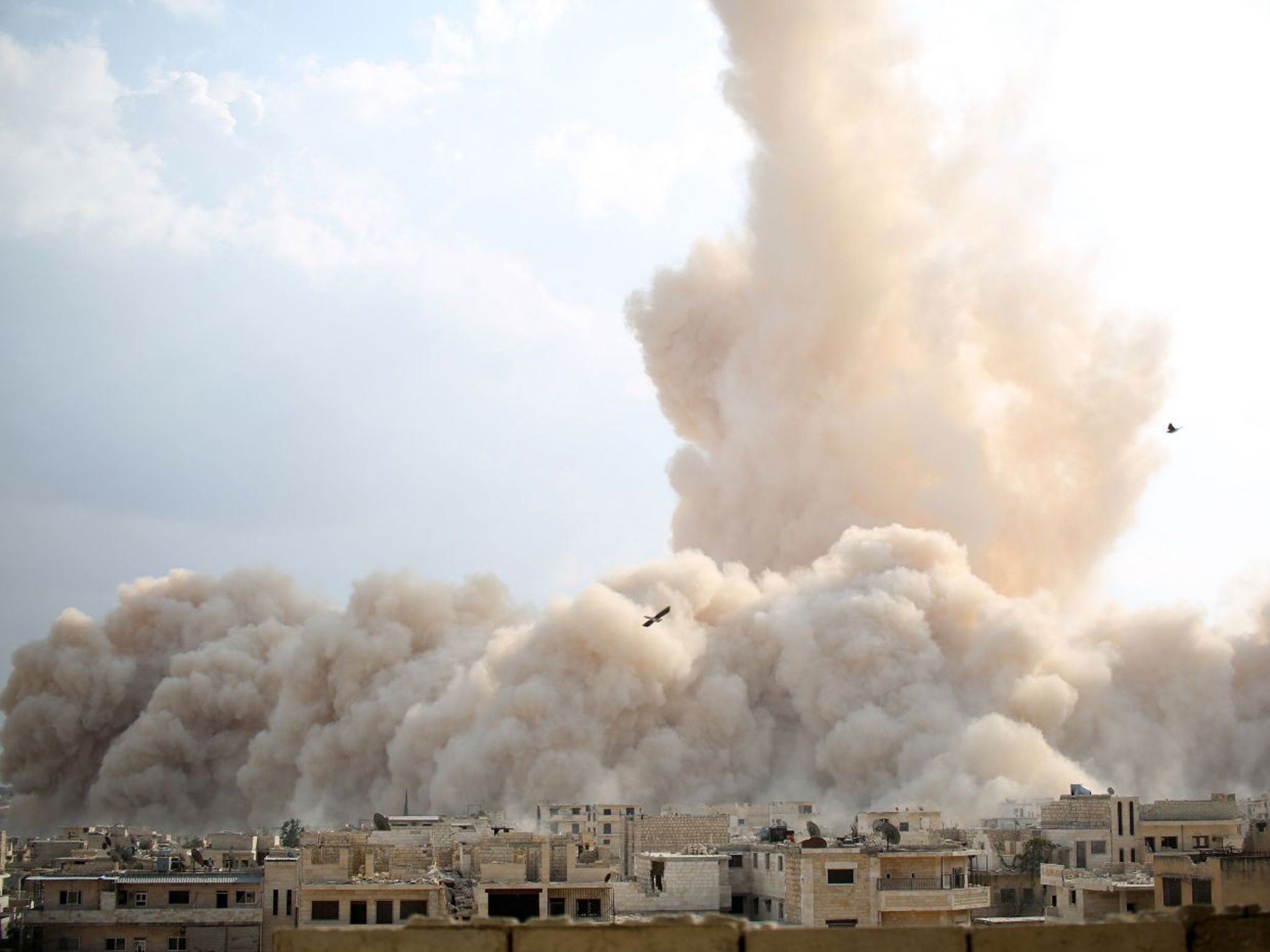Isis attack on Idlib: Assad's army leaders 'slaughtered' as jihadists nearly take Syrian provincial capital
In a major setback to President Assad, the second city – Idlib – narrowly escapes falling to jihadists as rebels storm provincial governor’s office and set about executing senior regime officers. Robert Fisk reports from Damascus

Your support helps us to tell the story
From reproductive rights to climate change to Big Tech, The Independent is on the ground when the story is developing. Whether it's investigating the financials of Elon Musk's pro-Trump PAC or producing our latest documentary, 'The A Word', which shines a light on the American women fighting for reproductive rights, we know how important it is to parse out the facts from the messaging.
At such a critical moment in US history, we need reporters on the ground. Your donation allows us to keep sending journalists to speak to both sides of the story.
The Independent is trusted by Americans across the entire political spectrum. And unlike many other quality news outlets, we choose not to lock Americans out of our reporting and analysis with paywalls. We believe quality journalism should be available to everyone, paid for by those who can afford it.
Your support makes all the difference.Syria almost lost its second city to the jihadists of Isis and Jabhat al-Nusra last night when hundreds of fighters stormed into the provincial capital, Idlib, captured the newly installed governor’s office and began beheading Syrian army officers. By the time government troops recaptured the building, at least 70 soldiers – many senior officers – had been executed, leaving one of the oldest cities in Syria in chaos. “They were slaughtered,” a message to Damascus said before the army was able to declare Idlib saved.
The eastern city of Raqqa has been in the hands of Isis for months, but Idlib lies strategically placed between Aleppo and the coastal city of Latakia – both of which are still held by President Bashar al-Assad’s regime. Idlib’s fall would have been a devastating blow to the government.
At one point, the Assad administration was told the city had fallen after police and security officers in the headquarters of governor Kheir Eddib Asayed defected to the rebels. Many did, in fact, surrender the building. But by chance soldiers on the city’s perimeter did not receive this news and continued to fight hundreds of jihadis trying to break into Idlib. They were still holding off the attackers when the governor’s office was recaptured.
Idlib lies scarcely 30 miles from Syria’s largest city, Aleppo, and is home to more than 200,000 people. Its museum is well known to long-ago tourists wishing to see the treasures of the so-called Roman “dead cities” of northern Syria, and it has been in a virtual stage of siege for well over a year. But the shock at its near-collapse was palpable in the capital, Damascus, where the new governor – who was not in his office at the time – managed to call army headquarters just in time to prevent the announcement of Idlib’s fall.
Although the attackers were identified as Jabhat al-Nusra rebels – the Syrian army regards all of its opponents as “terrorists” and part of Isis – the assault was obviously intended to crown another shattering victory for the so-called Islamic caliphate which now stretches from eastern Aleppo to the outskirts of Baghdad in Iraq. The ferocity of the attack – some soldiers managed to call Damascus to alert the government to their imminent execution – shows just how hard-pressed the Syrian regime is in its battle against the same enemy that the US President, Barack Obama, has promised to “degrade and destroy”. Degraded was the one thing the armed men who stormed Idlib appeared not to be.
When they arrived in the city centre, much as their comrades flooded into the Iraqi city of Mosul when the caliphate was first declared, the gunmen made sure to capture as many senior regime officers as possible. Their murder – by ritual beheading with a knife rather than shooting – was entirely in keeping with Isis policy. Before they lost the centre of the city, Jabhat al-Nusra was boasting that its “victory” was “a second Raqqa” and that “soon, you will hear the screams of unbelievers”. At Mushamah Hill outside the city, the jihadists captured two army tanks and 12 soldiers – their fate still unknown – while police in the city, apparently in league with would-be suicide bombers, opened the governor’s office to the attackers.
It seems they were able to identify the senior regime soldiers for decapitation. They could not be saved. Government officials in Damascus would speak only of “many dead” when the first news of the assault reached the capital. The country’s army has already lost at least 33,000 men – the real figure may well be above 46,000 – and the fall of Idlib would have marked a gruesome new stage in the Syrian war. Last night, the government’s flag again flew over the governor’s office. But for how long?